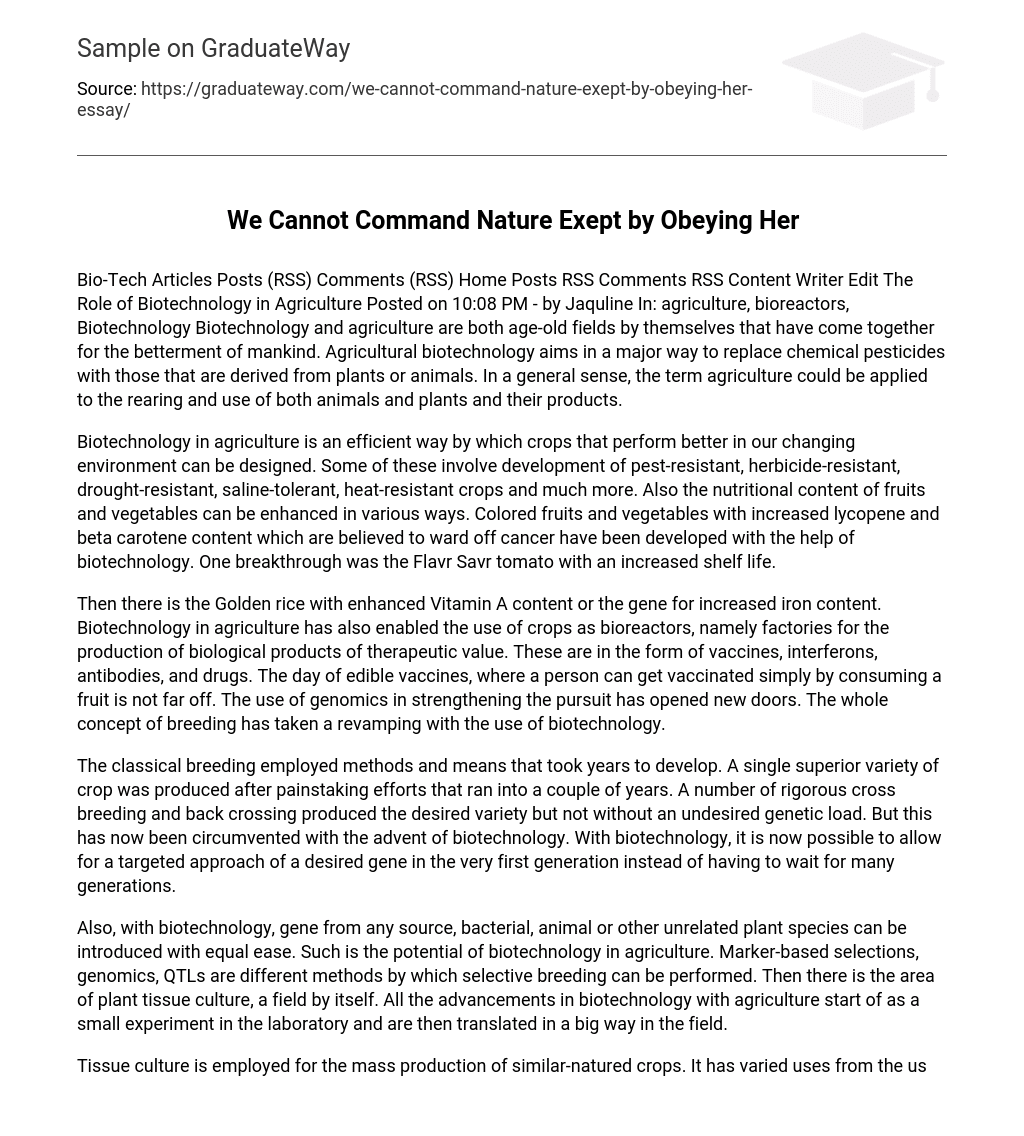Biotechnology and agriculture are both age-old fields by themselves that have come together for the betterment of mankind. Agricultural biotechnology aims in a major way to replace chemical pesticides with those that are derived from plants or animals. In a general sense, the term agriculture could be applied to the rearing and use of both animals and plants and their products.
Biotechnology in agriculture is an efficient way by which crops that perform better in our changing environment can be designed. Some of these involve development of pest-resistant, herbicide-resistant, drought-resistant, saline-tolerant, heat-resistant crops and much more. Also the nutritional content of fruits and vegetables can be enhanced in various ways. Colored fruits and vegetables with increased lycopene and beta carotene content which are believed to ward off cancer have been developed with the help of biotechnology. One breakthrough was the Flavr Savr tomato with an increased shelf life.
Then there is the Golden rice with enhanced Vitamin A content or the gene for increased iron content. Biotechnology in agriculture has also enabled the use of crops as bioreactors, namely factories for the production of biological products of therapeutic value. These are in the form of vaccines, interferons, antibodies, and drugs. The day of edible vaccines, where a person can get vaccinated simply by consuming a fruit is not far off. The use of genomics in strengthening the pursuit has opened new doors. The whole concept of breeding has taken a revamping with the use of biotechnology.
The classical breeding employed methods and means that took years to develop. A single superior variety of crop was produced after painstaking efforts that ran into a couple of years. A number of rigorous cross breeding and back crossing produced the desired variety but not without an undesired genetic load. But this has now been circumvented with the advent of biotechnology. With biotechnology, it is now possible to allow for a targeted approach of a desired gene in the very first generation instead of having to wait for many generations.
Also, with biotechnology, gene from any source, bacterial, animal or other unrelated plant species can be introduced with equal ease. Such is the potential of biotechnology in agriculture. Marker-based selections, genomics, QTLs are different methods by which selective breeding can be performed. Then there is the area of plant tissue culture, a field by itself. All the advancements in biotechnology with agriculture start of as a small experiment in the laboratory and are then translated in a big way in the field.
Tissue culture is employed for the mass production of similar-natured crops. It has varied uses from the use as bioreactors to the level of conservation of biodiversity. Endangered crops can be resurrected and propagated via this method. Crops of aesthetic value like orchids, ferns, production of brightly colored flowers, and much more can be done via tissue culture. Oil seeds and oil crops with more oil production can be obtained by this procedure. You can follow any responses to this entry through the RSS 2. 0 feed.





